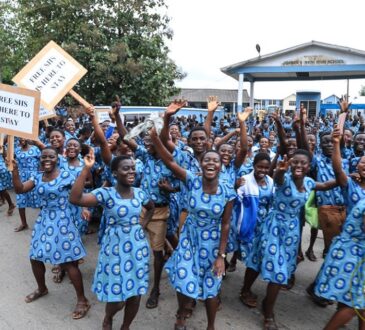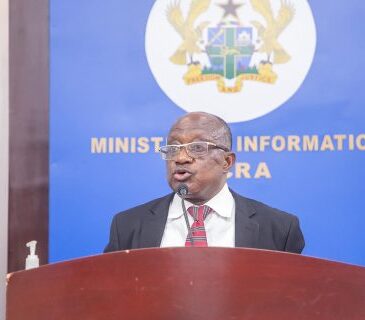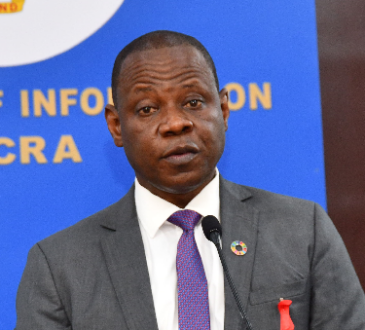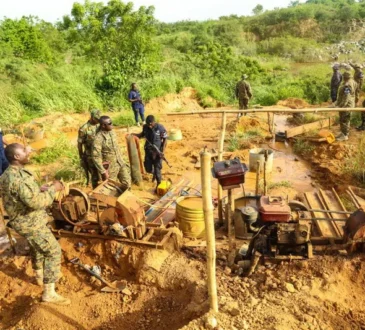
COVID-19 raised its ugly head in the later part of the year 2019 in some parts of the world mostly in China. The first known infections were discovered in Wuhan, China. The original source of viral Transmission to humans still remains unclear as does whether the virus became pathogenic before or after the spillover event.
Severe acute respiratory syndrome coronavirus 2(SARS-CoV-2) is a novel severe acute respiratory syndrome coronavirus. It was first identified from three (3) people with pneumonia connected to the cluster of acute illness cases in Wuhan. All structural features of the novel SARS-CoV-2 virus particle occur in related coronaviruses in nature. This has since then cause great negative impact on all aspect of life such as Political, Social, Economic, Religious lives styles of people. Organizations as well were not left with this great impact on both the employer and employee.
What the government and organizations did in the peak of COVID-19
The emergency of COVID-19 placed a herculean burden on leaders all around the globe as its presence became inimical to socio-economic growth and productivity. Many lives were lost by its incessant evolving nature because medical professionals could not lay their fingers on its metamorphosis entirely.
The COVID-19 effect has been enormous this includes low production and general impact on the economy. During the height of the positive confirmed COVID-19 cases in Ghana, all social gatherings were restricted by the government. Movement of workers were also restricted, and institutions such as education and religions bodies were all totally closed down including our borders. The government has to relieve citizens by providing subsidies on electricity and water bills for some months rather increasing government expenditure.
COVID-19 encouraged sole proprietorship as many persons resorted to survival business ventures to control and ameliorate the situation. Moreover, organizations were not left out in the calamity, employers have to strategize to protect both the employees and the employer to remain in business. Employers had to continue to pay for the medical expenses of employees who were affected financially by COVID-19. Unfortunately, some employees lost their lives whiles others also lose their jobs because their schedule was not needed at the time.
There was limited access to health care and delay in treatment due to the risk in COVID-19 cases. Some workers especially those in the health sector have to risk their lives to work assiduously to save the lives of the affected people.
There were sensitization programs to create awareness of staff on the outbreak and the necessary steps to take in order not to be affected and if contracted how to take care of one’s life and the people around.
Again, some organization’s introduced the shift-system to enable employees work spacious office to help sustain the employer in business in addition to virtual office and working from home and holding meetings through-electronic platforms such as Zoom, Microsoft, Cisco Webex, and Facebook etc.
In furtherance, employer’s expenditure increased because extra funds had to be spent to reengineer the work place to ensure that the workplace is safe by the purchasing of thermometer guns, hand sanitizers, nose mask,veronica buckets etc.
Groups and individuals’ social lives were affected because there were restrictions on movements by the government, the most remembered one in Ghana was the three (3) weeks partial lock down in Greater Accra, Tema, Kasoa and Greater Kumasi. The lockdown confinement measures made people feel bored and isolated which negatively affected their psychological health.
Effects Of Covid-19 On The Employer
March,2021 marks one year since the beginning of state-mandatory stay-at-home orders and workplace shutdowns due to the global COVID-19 in Ghana.
Some employers most especially those in the micro, small enterprises entirely shut down their businesses to protect the lives of the employees and also to save cost. While others had their business collapsed due to the pandemic.
Moreso, employer’s expenditure increased due to measures put in place to ensure there is safety at the workplace. This included the purchasing of thermometer guns, hand sanitizers, nose mask, veronica buckets etc.
Other employers suffered loss of revenue because patronage was low and for others there was no patronage. One cannot forget also employees who are still having long-term effects experiencing greater levels of depression or anxiety as there are many reports of higher absence rates and lower productivity all due to COVID-19. These have affected the financial base of most employers since they were hit with unbudgeted expenditure to take care of COVID-19 positive employees’ medical expenses. Besides these problems, employers have currently have the difficult of ensuring that their operations stand the test of time. This situation has necessitated some employers to seek for financial support to revamp their operations. In addition, the instances of unfair termination by some employers is putting pressure on the few employees at post. Some employees whose jobs were classified as non–essential had to look for alternate jobs because of unfair termination by their employers, the legal issues surrounding these unfair termination is a challenge for many organizations and their HRs.
Employees are now mindful of their health and therefore adhering to all COVID-19 protocols by regular use of nose mask, hand sanitizers, regular washing of hands, distancing among others. However, the evidence is that for many employees, the protocols are no longer needed since His Excellency the president Nana Addo Dankwa Akuffo Addo relaxed the COVID-19 protocols and declared the wearing of face mask non-mandatory.
What should the HR Function in organizations do going forward?
Although COVID-19 has many negativities associated with it, COVID-19 has push the boundary of innovativeness and creativity of individuals thereby creating job opportunities most especially for those in the technology value chain. Many families were re-united because there were restrictions on movements. Several persons have become personal-hygiene conscious and mindful of their health by adhering to the COVID-19 protocols.
Ghana Health Service (GHS) has admonished that this pandemic has come to stay so all and sundry must not relent in adhering to all the laid down safety protocols. Organizations have to put in strategies for adaptable working conditions and must have flexible working conditions. Subsequently, organizations must sharpen the critical skills of employees to be able to meet their target. Furthermore, organizations must refer HR Legal issues to legal experts for advice when it becomes necessary most especially in the area of employee job rotation, job security and the termination of non-essential job roles.
The HR function should continue to sensitize employee to embrace personal hygiene and continue to observe the COVID-19 protocols for their personal safety even as many organizations and economies around the world relax the COVID-19 protocols.
AUTHOR: Juliana Amoah
Deputy Human Resource Manager Forest Services Division, Forestry Commission Ghana







